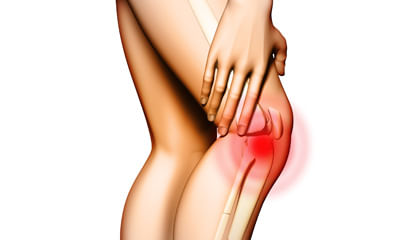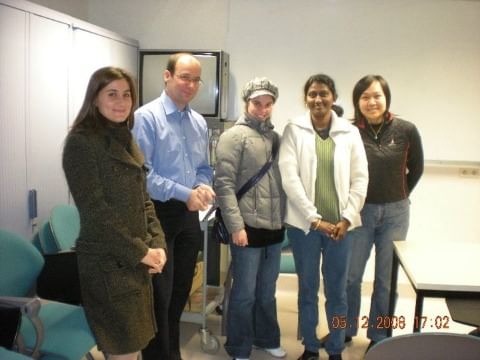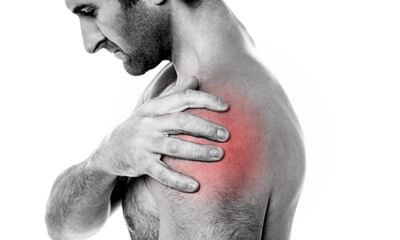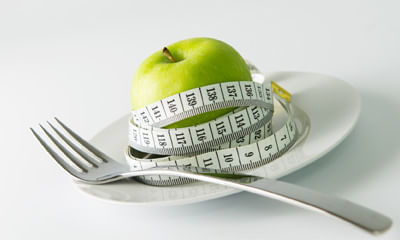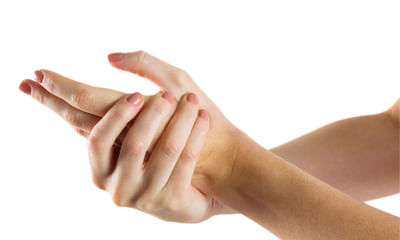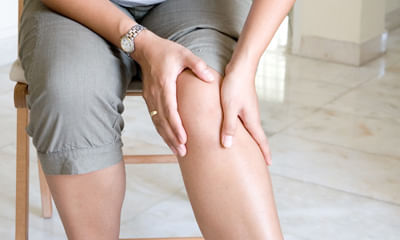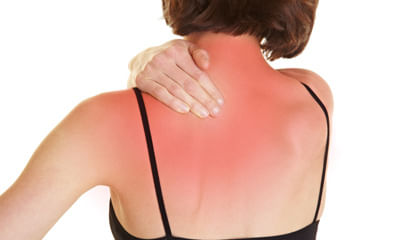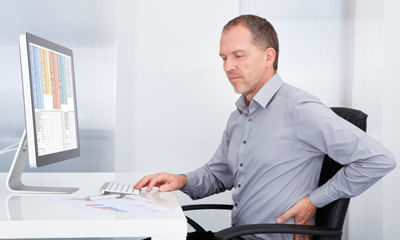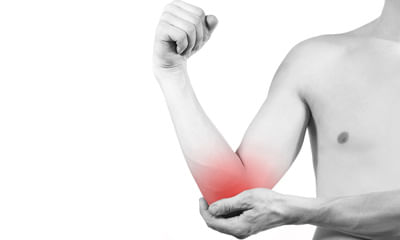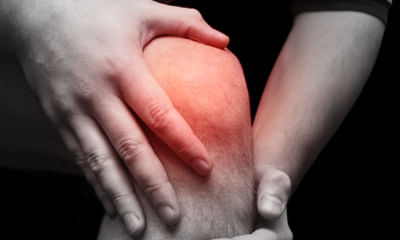Get the App
For Doctors
Login/Sign-up
Health Feed
Find Doctors
Health Packages
AllQ&AsTipsQuizzes
Hole in the Heart Questions
Health Query
Share
Bookmark
Report
You may still be experiencing some residual issues related to your meniscus tear, even though you have recovered from the initial injury. The specific symptoms you described, such as pain when bending the knee while sitting and needing to tighten your calf to feel the pain, suggest that there may be ongoing irritation or inflammation in the knee joint.
One possibility is that you could be experiencing a condition called "meniscal irritation" or "meniscal impingement. This occurs when the tor...more
One possibility is that you could be experiencing a condition called "meniscal irritation" or "meniscal impingement. This occurs when the tor...more
22 people found this helpful
Asked for male, 31 years old from Zirakpur
Share
Bookmark
Report
It looks like you have vitamin d deficiency and anaemia. You need to improve the tone of the muscles in a rhythmical manner. If you do that with proper diet restriction nothing will happen to you. Shin pain after walking or running and minor pain in the calf muscles while walking is due to the low iron in the body. You need to take iron tablets or you can consume good diet for you to feel better.
Asked for female, 53 years old from Jammu
Share
Bookmark
Report
Here are some general dietary tips that may be beneficial:
maintain a balanced diet: focus on consuming a variety of nutrient-dense foods such as fruits, vegetables, whole grains, lean proteins (like poultry, fish, tofu, legumes), and healthy fats (such as avocados, nuts, seeds, and olive oil).
Stay hydrated: drink plenty of water throughout the day to keep your joints lubricated and to help with weight loss.
Control portion sizes: be mindful of portion sizes to avoid overeating, whi...more
maintain a balanced diet: focus on consuming a variety of nutrient-dense foods such as fruits, vegetables, whole grains, lean proteins (like poultry, fish, tofu, legumes), and healthy fats (such as avocados, nuts, seeds, and olive oil).
Stay hydrated: drink plenty of water throughout the day to keep your joints lubricated and to help with weight loss.
Control portion sizes: be mindful of portion sizes to avoid overeating, whi...more
47 people found this helpful
Asked for female, 55 years old from Bangalore
Share
Bookmark
Report
Here are some non-medication treatments commonly recommended for heel pain:
rest: avoid activities that aggravate the pain and give your heels time to rest and heal.
Ice: apply ice packs to the affected area for about 15-20 minutes several times a day to reduce inflammation and relieve pain.
Stretching exercises: perform gentle stretching exercises for the calf muscles and plantar fascia to improve flexibility and reduce tension in the heel area.
Footwear: wear supportive shoes w...more
rest: avoid activities that aggravate the pain and give your heels time to rest and heal.
Ice: apply ice packs to the affected area for about 15-20 minutes several times a day to reduce inflammation and relieve pain.
Stretching exercises: perform gentle stretching exercises for the calf muscles and plantar fascia to improve flexibility and reduce tension in the heel area.
Footwear: wear supportive shoes w...more
22 people found this helpful
Asked for female, 55 years old from Bangalore
Share
Bookmark
Report
Hi Lybrate user morning heel pain is due to plantar fascitis ,plantar fasciitis commonly causes stabbing pain that often occurs with your first steps in the morning. As you get up and move, the pain normally decreases, but it might return after long periods of standing or when you stand up after sitting. Visit near by physiotherapy clinic for proper drug free treatment.
19 people found this helpful
Asked for female, 55 years old from Bangalore
Share
Bookmark
Report
It sounds like you may be experiencing a condition called plantar fasciitis, which is characterized by stabbing pain near the heel, especially in the morning or after periods of rest. Plantar fasciitis is a common cause of heel pain in adults, particularly those who are middle-aged or older.
Here are some non-prescription treatment options that may help relieve your heel pain:
over-the-counter pain relievers: nonsteroidal anti-inflammatory drugs (nsaids) such as ibuprofen (advil, motrin)...more
Here are some non-prescription treatment options that may help relieve your heel pain:
over-the-counter pain relievers: nonsteroidal anti-inflammatory drugs (nsaids) such as ibuprofen (advil, motrin)...more
17 people found this helpful
Asked for male, 71 years old from new delhi
Share
Bookmark
Report
Yes keeping a pillow under the knees definitely helps you to to facilitate digestion and also to have comfort while sleeping especially when you have severe back pain. That gives you maximum comfort while sleeping. Hot water fermentation or heat pads will give you relaxation but while sleeping pillow is the best. Let us know if you want we can give you suggestions on using venous pillow which will help and regulate the blood flow in the legs while sleeping considering your age. No not all the pa...more
35 people found this helpful
Asked for male, 46 years old from Ahmedabad
Share
Bookmark
Report
The symptoms you've listed can be complex and may indicate various underlying health conditions. Given the wide range of symptoms affecting different parts of your body, it would be best to consult with a primary care physician initially. They can conduct a thorough assessment, review your medical history, and perform any necessary physical examinations.
Based on your symptoms, the primary care physician may refer you to one or more specialists, depending on their assessment. Here are some s...more
Based on your symptoms, the primary care physician may refer you to one or more specialists, depending on their assessment. Here are some s...more
44 people found this helpful
Asked for female, 76 years old from Hyderabad
Share
Bookmark
Report
Hi. Your high esr value is 30 and it is not very high. Although you have pain in legs and bones, may be due to low vit d level or less water intake. Try to do exercises for legs especially streching exercise along with vit d supplements daily. Try to visit your nearest orthopaedic doc or physiotherapist. Thank you.
24 people found this helpful
Asked for male, 33 years old from Hyderabad
Share
Bookmark
Report
Ice therapy would definitely help to reduce the inflammation. We also advise you to use knee cap which would help to prevent the knee from damaging further and also to maintain the quadriceps muscle tone. Stiffness might have developed due to weakness of the ligaments &inflammed cartilage. Specific knee exercises will also help ie. Keeping ball underneath the knee and keep pressing it. That's the simple exercise which will help you to strengthen the knee. You need to consume good protein and iro...more
119 people found this helpful
Book appointment with top doctors for Hole in the Heart treatment
View fees, clinic timings and reviews
Ask a free question
Get FREE multiple opinions from Doctors
posted anonymously


